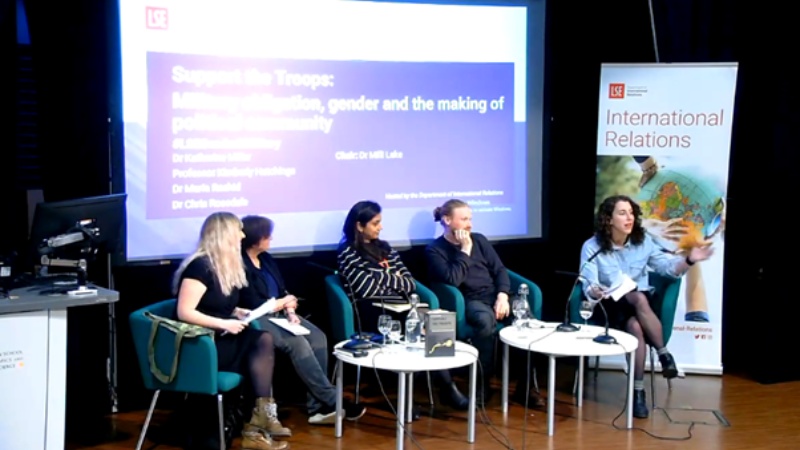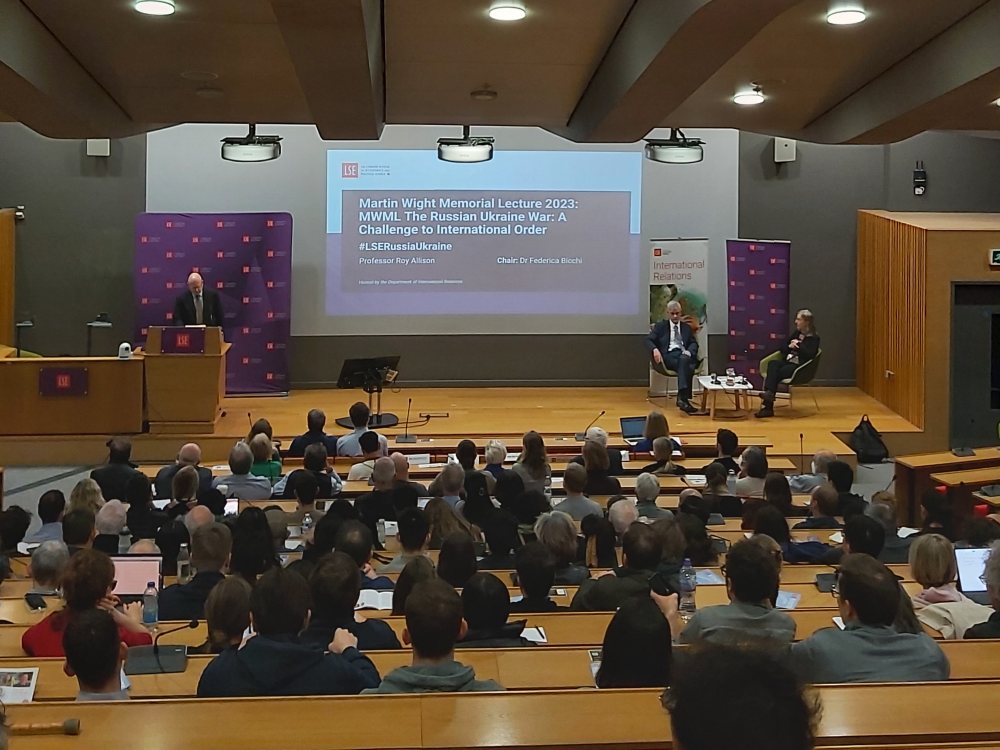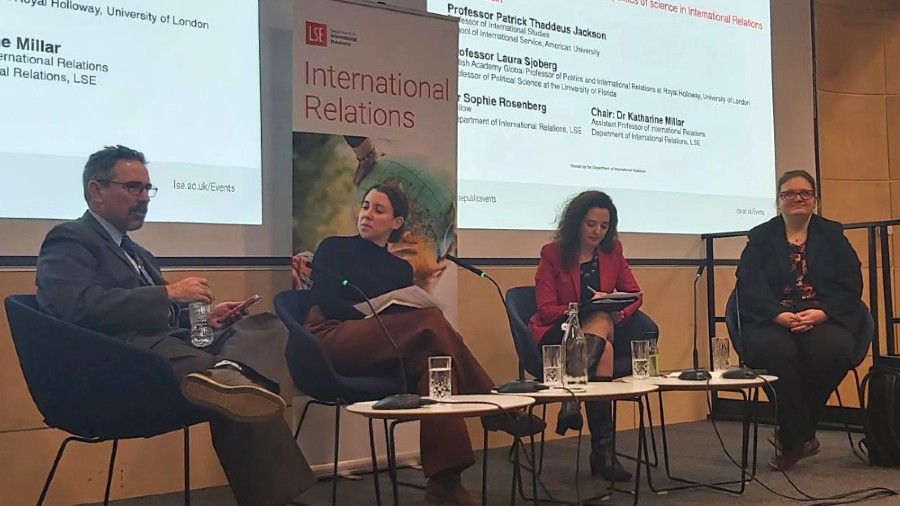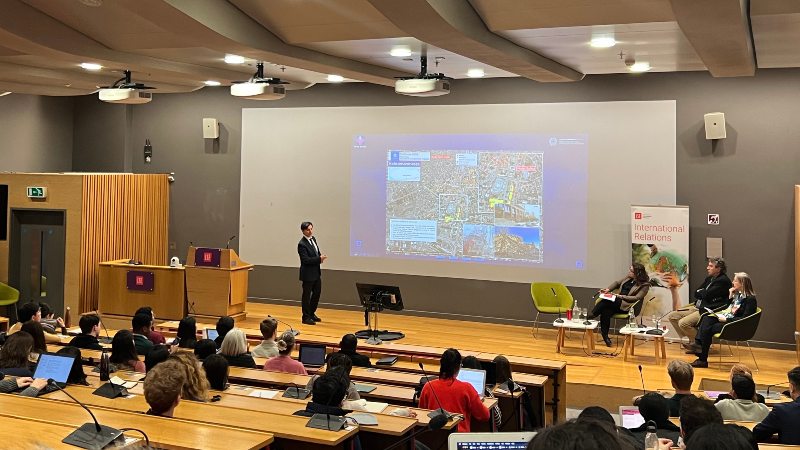On Tuesday 9 May 2023, a panel of speakers met to discuss the new book Geopolitics and Democracy by Peter Trubowitz (Professor of International Relations and Director of the Phelan US Centre at LSE) and Brian Burgoon ( Professor of International and Comparative Political Economy in the Department of Political Science and Director of the Centre for European Studies at the University of Amsterdam). The book provides a new explanation of why the liberal international order has buckled under the pressures of anti-globalist political forces.
As well as the authors, the panel included Michael Cox (Emeritus Professor of International Relations at LSE and founding Director of LSE IDEAS), Sara Hobolt (Sutherland Chair in European Institutions and Professor in the Department of Government at LSE) and Leslie Vinjamuri (Reader in International Relations at the Department of Politics and International Studies & Centre for International Studies and Diplomacy, SOAS and Director of the US and the Americas programme at Chatham House). The event was chaired by Jeffrey Chwieroth, Professor of International Political Economy in the Department of International Relations at LSE.
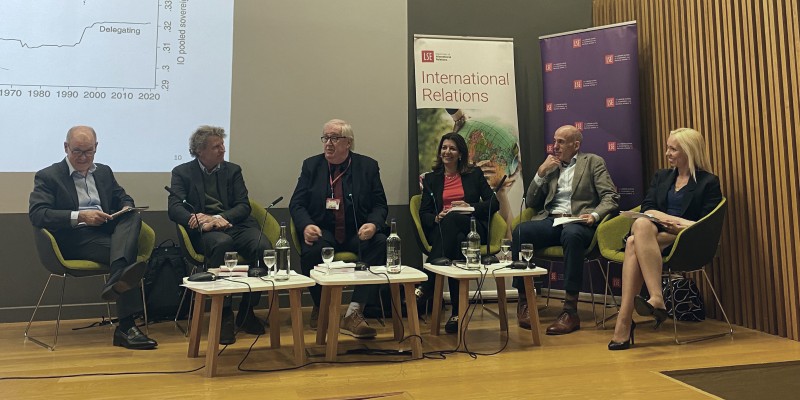
L to R: Peter Trubowitz, Brian Burgoon, Michael Cox, Leslie Vinjamuri, Jeffrey Chwieroth (Chair), Sara Hobolt
Professors Burgoon and Trubowitz began by laying out the quandaries, explanatory theories, and evidence from their recent book. They mapped out historical change within Western states to argue that governments overreached in pursuing liberal globalisation that their electorates did not support. During the Cold War, Western states and voters concurred that high security spending was to be paired with a rich social protection safety net. The gutting of that safety net has led Western voters to withdraw support for internationalism, while mainstream parties continue to pursue it.
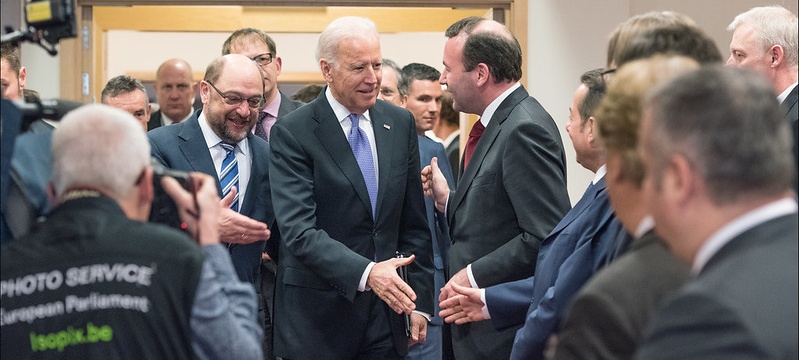
© European Union 2015 – European Parliament
Panellists commended the foregrounding of empirical statistical evidence and the integration of different political science subfields. As Professor Trubowitz put it afterwards, the security and political economy disciplines get “stovepiped” in a way that fails to capture the more holistic assessments political leaders make.
Most of the questions posed by panellists and audience members put pressure on what the argument did not include: agency of leaders to mobilise issues, racist anti-immigrant sentiment, or change over time in what “globalisation” entails.
The security and political economy disciplines get “stovepiped” in a way that fails to capture the more holistic assessments political leaders make.
The presentation left much of the related impacts implicit or skimmed towards the end, such as the mainstreaming of the radical right, Brexit, and non-cooperation in international organisations.
It also failed to explain the driving forces behind the observed changes, such as why voting populaces were disinterested in integration (a fear of outsourcing?) and why democratic governments pursued policies anyways that alienated and impoverished their own people (the lobbying of capital holders?).
Professor Hobolt’s point that desiring social protection payouts drove poorer states and their populaces towards deeper integration revealed the larger pitfall of portraying diverse states or the West as monolithic wholes with singular interests.
Nevertheless, the panel (and new book) successfully posited a multidisciplinary explanation of an important trend with dangerous implications for the liberal world order.
Event report by Alexander Rodriguez, MSc International Relations



